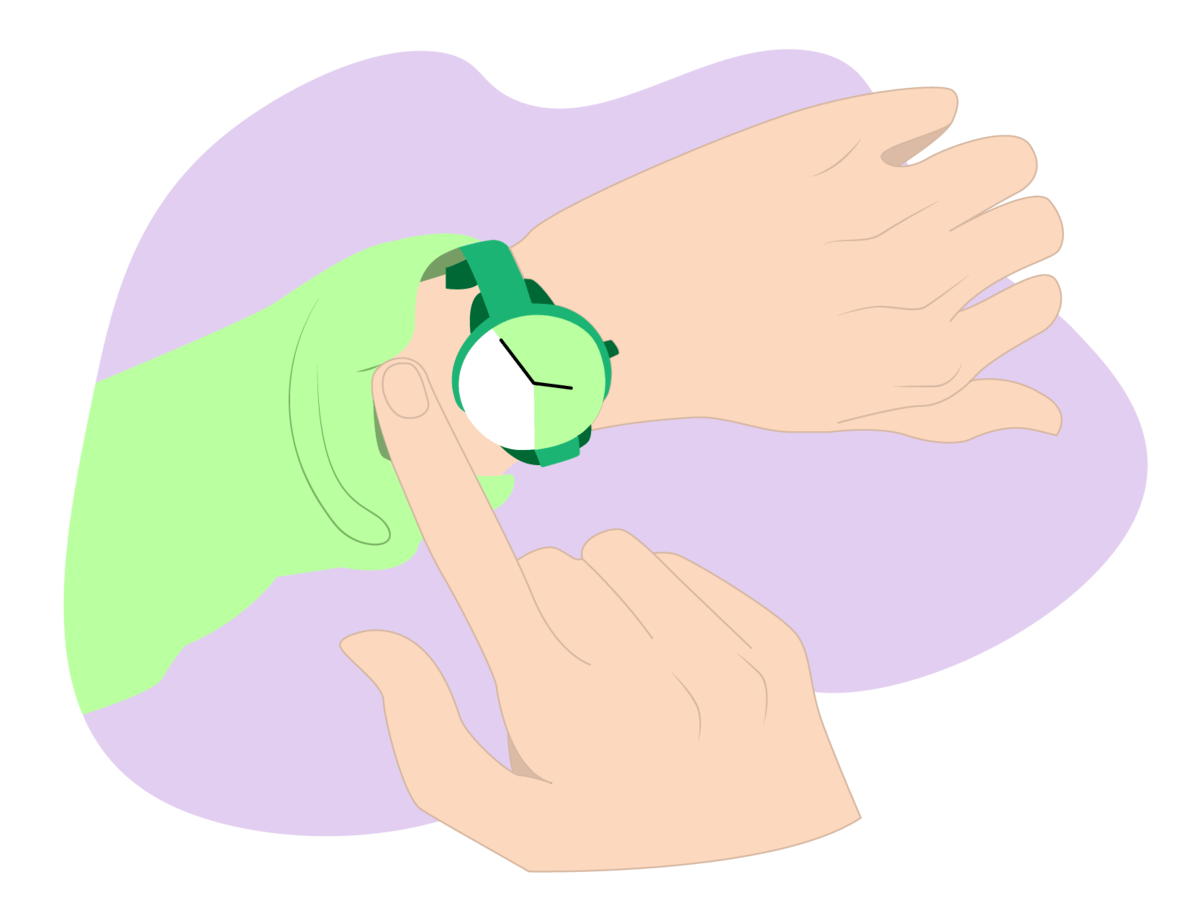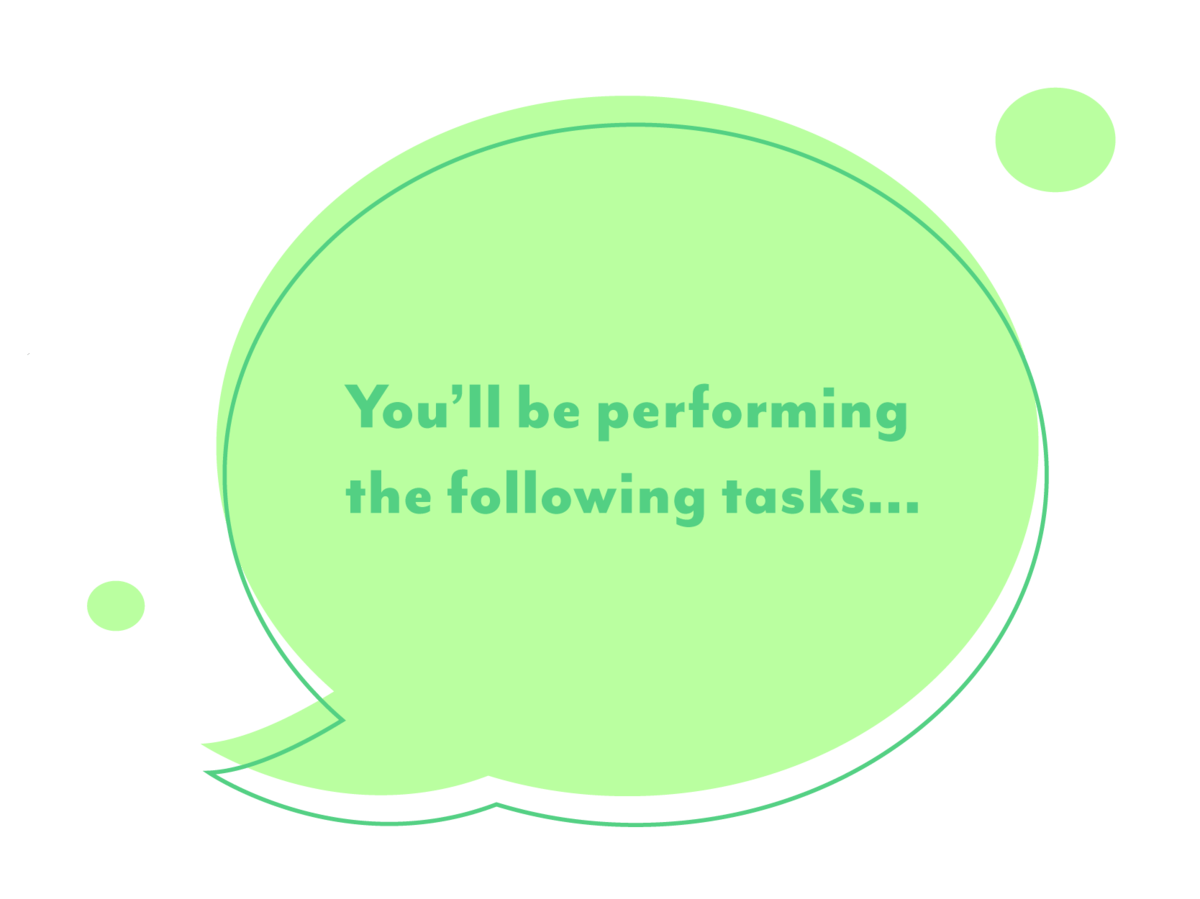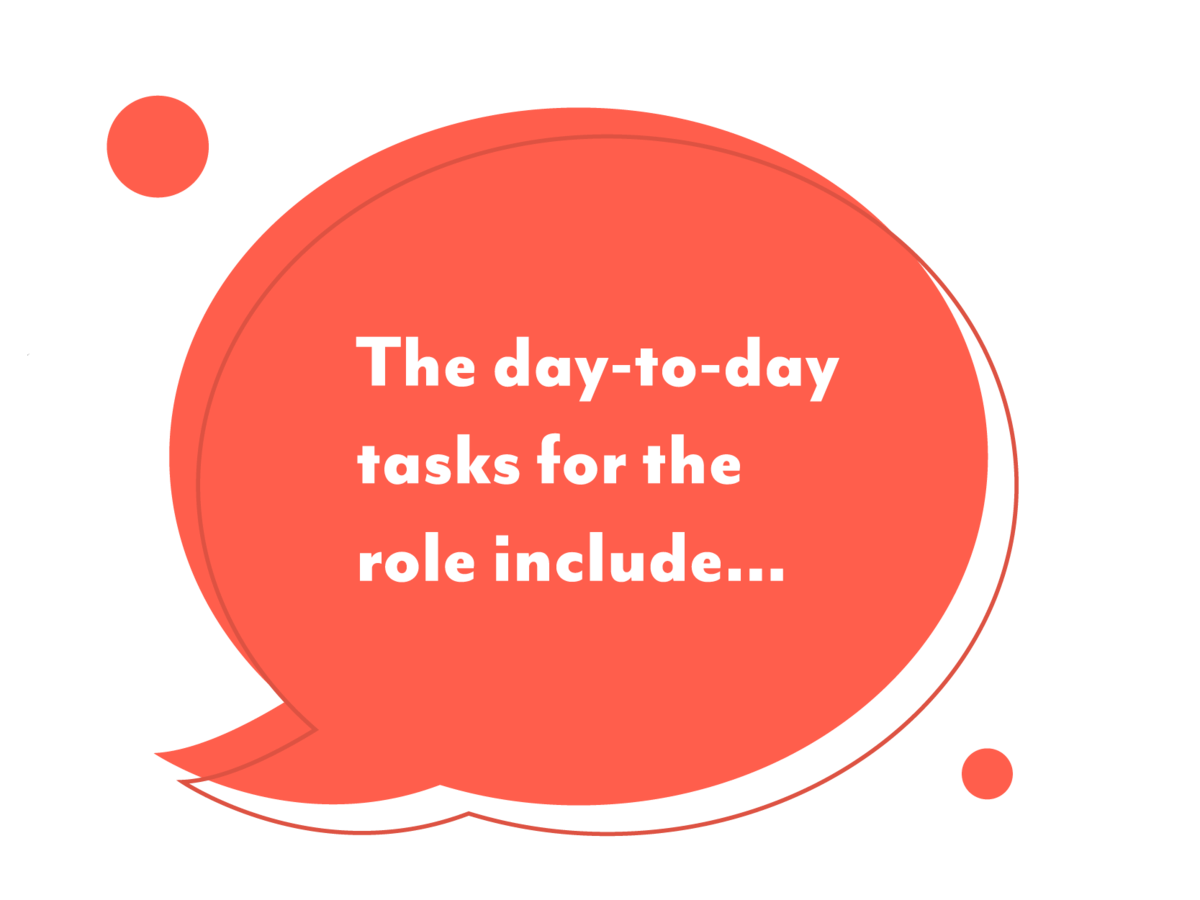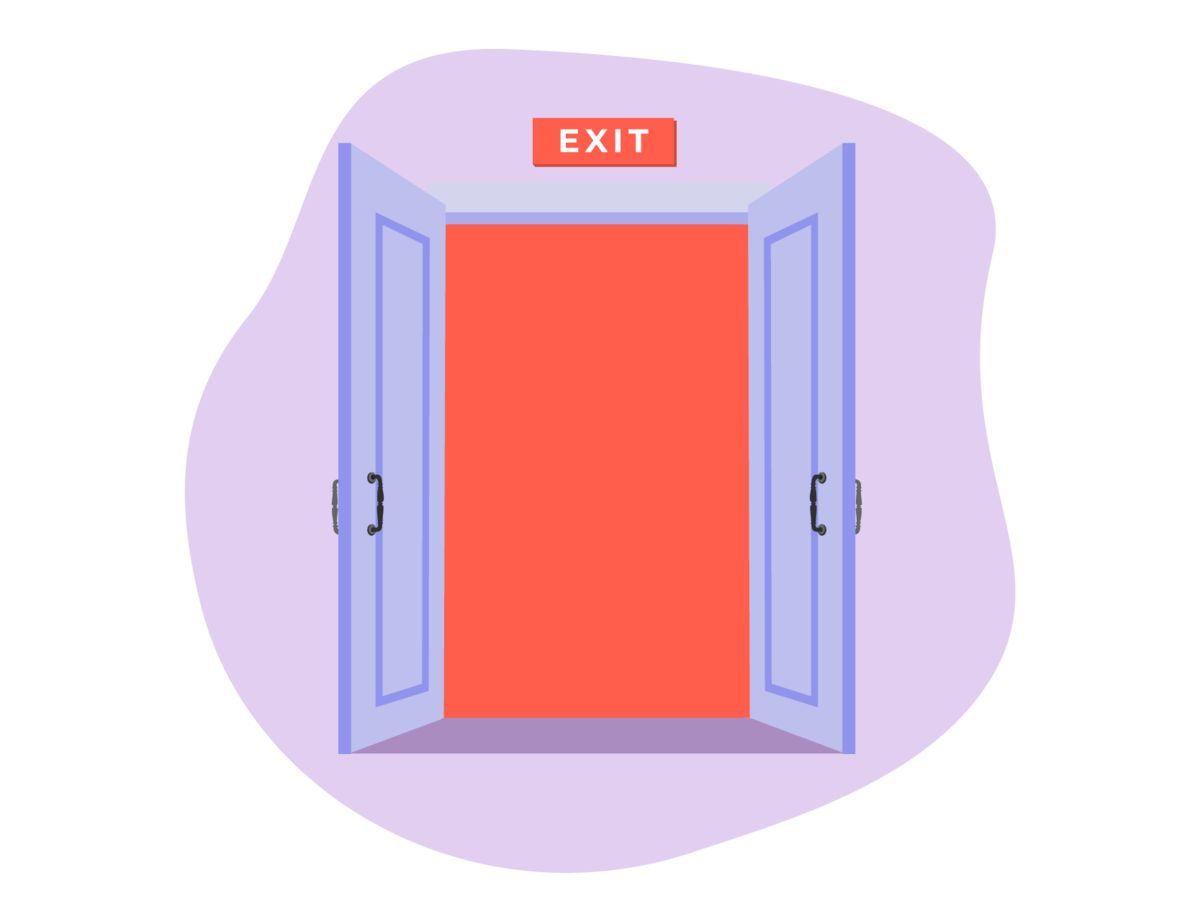Wondering how to tell if a job interview went well?
Waiting to hear from the hiring manager whether you’ve got the job offer can be a nerve-wracking experience, so reviewing and recognising the signs of a good interview might put you at ease.
Conversely, recognising signs an interview went badly should allow you to reflect, prepare yourself for possible rejection, then continue your job search and seek new opportunities.
Obviously it’s good to remain positive, but try to take a step back and see objectively from an outsider’s perspective.
The job hunt can be daunting, so make sure you read our blog on the different types of interviews to make sure you’re always prepared for the hiring process. Some of them may feature other team members, not just the main interviewer, for example.
Here are some classic indicators that will help you tell if your job interviews went well.
- We’ve also included some specific indicators for remote interviews, as bullet points.
Key Points
Longer-than-expected interviews often signal genuine interest and engagement from the hiring manager.
If the interviewer speaks as if you already have the job, it’s a strong sign they see you as a good fit.
Positive reactions to your skills and experience suggest you’ve met or exceeded their expectations.
Building natural rapport and easy conversation indicates a connection that can influence hiring decisions.
Short interviews, lack of questions, or vague next steps are warning signs an interview may not have gone well.
Need some 1:1 coaching?
Learn from seasoned industry experts with our 1-on-1 Coaching service!
- Access to your own coaching expert
- Sessions available at short notice
- All industries covered


Good signs your interview went well
1. The interview was longer than expected
Usually a hiring manager should say in your interview confirmation email or at the beginning of the job interview roughly how long it will last.
If you find the interview going on much longer than the scheduled time allotted, it’s a good sign.
Many hiring managers are busy and interviewing a number of candidates takes serious time.
Therefore they’re unlikely to spend excess time speaking with you unless they’re genuinely interested in hiring you.
Maybe the interviewer went to pains to keep the conversation going when it could have reached a natural end, or they asked you lots of questions aimed at getting to know you as a person.
This suggests they’re trying to gather more information on you and consider how you’d fit in with the team, and shows a genuine consideration of you as a viable candidate.
- In virtual interviews, if the discussion runs over time or the interviewer stays online to continue chatting, it’s a strong indication they’re engaged and interested in you.

2. The interviewer spoke to you as if you already had the role
When speaking about the role and what you’d be doing if you got the job, maybe the hiring manager spoke to you as if you had turned up on your first day.

Using the future tense like ‘you’ll be doing’, and ‘you’ll be working with’ suggests that your job interview was going well enough for the interviewer to imagine you working there. If the hiring manager thinks that you’ll be a good fit for the company culture, that’s a great sign.
3. The interviewer asked lots of questions about your skills and experience, and your responses were received positively.
If you found yourself answering plenty of questions about your experience and qualifications, the interviewer likely saw potential in you as a candidate and was seeking to confirm the good impression you made so far.
It’s good to pay attention to how the interviewer responds to your answers for these types of questions. If their attitude was positive, it’s a good sign they were satisfied with your background and are now assured you would be a good fit for the role.
4. A rapport was built between you and the interviewer
Another positive sign of a successful interview is to consider the rapport you established with the interviewer (if any).
Maybe the interviewer smiled and was encouraging to your answers by nodding and showing positive facial expressions. Hopefully there was natural conversation or some easy banter.
If the interviewer seems relaxed, they are happy to take the time to get to know you as a candidate and potential future colleague.
Look for positive body language. If the interviewer is enjoying getting to know you, there will be recognisable signs in their body language, as in any other social interaction.
These are positive signs the interviewer connected with you as a person, which sheds a golden light on you as a candidate.
- During remote interviews, building rapport can be shown through consistent eye contact with the camera, relaxed conversation flow, and the interviewer showing genuine interest in your environment or working setup.
There is a danger of going too far the opposite way, though. Being overly familiar and friendly with the interviewer can also be a turn-off, and can lead to you making slip-ups where you say things you shouldn’t say in an interview.
For example, you might feel relaxed enough to mention that your old boss was a bit of a nightmare, or raise other major interview red flags.
In future, make sure to maintain a balance between friendly and professional during the interview process, and hiring managers will be more likely to line you up for a second interview.
See our blog on making an impact in your interview for more on making a good impression.
5. You were given a tour or introduced to colleagues (and gelled with them)
If you were introduced to some other employees with whom you would be working, or given a tour of the workplace after the interview, this is a positive sign.
The interviewer had the chance to save time in the interview process and not show you around if they didn’t like you.
Instead they might have chosen to show off the work environment and possibly your future colleagues to make you more likely to accept a job offer.
They may have also wanted the other team members to meet you so they could ask them afterwards for some positive feedback and get another perspective on you as a person and candidate.
- In remote settings, this might take the form of virtual introductions to team members over video or an online office walkthrough, showing the same enthusiasm to integrate you into the company.

6. The interviewer tried to sell you on the company
Interviews are a two-way process. It’s as much about you getting to know the company and environment as much as the interviewer getting a feel for you.
As such, if the hiring manager is interested in getting you on board they’ll try to make a good impression and pitch the company to you wherever possible to ensure that you would accept a job offer.
If they want you to join, they will provide lots of details about the company and the role’s responsibilities. They’ll want you to feel confident about making the decision to join.
It’s why asking about the company culture and positive aspects of the workplace are good examples of questions to ask in an interview – they give you a chance to gauge the interviewer’s interest in getting you on board.
If they go on and on about the company perks, how great the employees are, how nice the office is etc., this is a great sign.
- In online interviews, this can appear as the hiring manager showcasing digital perks – such as flexible remote working, virtual wellbeing initiatives, or online team social events – to attract you to the role.

7. The interviewer spoke about next steps
Generally speaking, if the interviewer was considering hiring you, they’ll probably want to keep you in the loop with possible next steps, either in the actual interview or in a follow up email.
A good way to tell if an interview went well is considering whether the interviewer went into detail about what to expect next in the hiring process.
E.g. ‘We’re meeting a few people but we’ll get back to you in two days’, or ‘the next stage will be a second interview’.
If future interviews are mentioned, this is a pretty good sign the interview went your way.
Another sign of a successful interview is if the hiring manager asked you what your notice period is, or when you’d potentially be able to start in the role if successful.
They may also inquire as to your other applications and prospects. This is a subtle sign that they are gauging demand and may plan to hire you before a competitor can.

Signs your interview could have been better
1. The interview ended early
If you were told the job interview would last an hour, yet 30 minutes later you were waved out the door, this could be a sign the interviewer made up their mind early on that you’re not the right fit for the job.
- This still applies to video interviews – if the meeting ends abruptly or the interviewer doesn’t use the remaining time for casual conversation or questions, it can suggest limited interest.
They could conclude this for a variety of reasons, including flaws in your interview technique or behaviour.
Research found that in a survey of 2,000 employers, 33% knew they’d hire someone within the first 30 seconds.
On a similar note, 50% said they could discount a candidate down to the way they dressed, acted or even walked through the door!
Unfortunately you may have been deemed unfit for the job early on, leading to the interview being cut short.
If the interviewer had a set list of interview questions and you whistled through them, your answers may have been too short – meaning you didn’t sell yourself properly.

2. The interviewer distanced you from the role
Maybe the interviewer pointedly used ‘if’ and spoke of ‘the candidate’.
If they made sure to depersonalise by saying ‘Someone in this role would…’, this could be a sign the interviewer is not considering offering you the job and is trying to avoid attaching you to the role. They may have other applicants in mind.
However, this is not always a bad sign; the employer might simply be remaining professional and objective. Watch out for the interviewer’s body language adopted by the hiring manager for clues.
To counter this in your next job interview, try asking questions about the growth opportunities within the company. If a hiring manager is confident about a candidate they will naturally discuss future advancement. If they are unsure they won’t.
Try discussing how you can adapt your current skill set to the role to change their mind. This is music to a hiring manager’s ears; they will be looking for demonstrations of self-improvement and commitment to the company.
Ask follow-up questions and offer positive responses. The interviewer has more interviews scheduled and other candidates in mind. Let them know that you’re highly interested and a good candidate.
Learning how to take the floor and show yourself off – whilst knowing when to stop without rambling – is important. It’s always worth practising this with a friend or family member.

3. The interviewer didn’t seem interested in your experience or skill set
To decide on a promising candidate’s worthiness for the role, the interviewer will ask lots of questions and follow-up questions about skills, strengths and experience.
If your interviewer didn’t seem interested in yours, this is a bad sign.
In future interviews, if no questions of this kind are coming your way, take the initiative and make the hiring decision easy. Bring up your strengths and experience, and discuss how they relate to the role.
During interviews, hiring managers will try to picture the candidate in the role. Your job is to make this vision as flawless and clear as possible.
4. No rapport was built
A stilted interview manifests itself in the following signs:
a) Silences after you’ve finished speaking, or pauses while the interviewer thinks hard about what to ask you next, suggesting the conversation isn’t flowing.
- Please bear in mind though this can be more normal during online interviews
b) The interviewer seeming uninterested at any point, such as cutting you short mid-answer or hurrying your answer along.
c) The interviewer looking unsure or confused and asking you to explain something you’ve said.
d) Other signs like checking the clock, losing eye contact or yawning excessively (this could be a sign you’re boring the interviewer).
- For online interviews, you might notice the hiring manager breaking eye contact by looking off screen repeatedly or at other stuff on their computer.
In future interviews, try to incorporate positive body language and use rapport-building techniques such as smiling, nodding and maintaining eye contact while the interviewer is asking questions. Be friendly and open to building a better connection with the interviewer.
Engaging conversation goes a long way in encouraging the interviewer to see you as a potential employee with whom they will enjoy working.
5. They walked you straight out without showing you the workplace
- For remote interviews, this may look like the interviewer skipping any overview of company culture, team dynamics, or what remote collaboration looks like in practice.
If a company were hoping to hire you they’d likely want you to see your potential work environment.
This relates to an important part of ‘how to tell if an interview went well’ – how much the interviewer showcases the company. Which brings us onto sign 6.

6. The interviewer didn’t try to get you on board.
Maybe you used your chance to ask the interviewer questions to find out what they like about the company, and they half-heartedly listed a few things they like about the place, but wrapped up quite quickly.
The interviewer could be avoiding spending time advertising the company to you, knowing they probably won’t be taking your application further.
7. The interviewer was vague about when to expect to hear back
The final note an employer ends the interview on can be telling. If they shooed you out the door with a non-committal ‘we’ll get back to you’, this could be a bad sign that the initial interview hasn’t gone very well.
- If after a video interview the hiring manager doesn’t clarify next digital steps or mention when to expect an email update, it can similarly indicate uncertainty about your candidacy.
Read our blog on following up after an interview for tips on staying fresh in the employer’s mind.
FAQs
What is a red flag in an interview?
A red flag in an interview is any sign that something may be wrong with either the candidate or the company. For candidates, it could be showing poor preparation, badmouthing past employers or lacking enthusiasm. For employers, red flags include vague answers about company culture, high turnover hints or dismissive attitudes toward work-life balance.
What is the 80/20 rule in interviewing?
The 80/20 rule in interviewing suggests that candidates should speak for around 80% of the time while the interviewer talks for about 20%. This balance allows you to showcase your skills and experience while giving the interviewer enough opportunity to guide the conversation and assess your fit for the role.
What are the 3 Cs of interviewing?
The three Cs of interviewing are Confidence, Communication, and Connection. Confidence shows you believe in your abilities, clear communication helps you express ideas effectively, and building connection demonstrates emotional intelligence and rapport with the interviewer — all key factors in making a lasting impression.
What are 5 common interview mistakes?
Five common interview mistakes include arriving late, failing to research the company, speaking negatively about past employers, giving vague or generic answers, and not asking insightful questions. Avoiding these errors helps show professionalism, preparation and genuine interest in the role.
What are the three golden rules of an interview?
The three golden rules of an interview are: be prepared, be professional and be yourself. Preparation ensures you can answer confidently, professionalism leaves a positive impression, and authenticity helps the interviewer see your true personality and fit for the company culture.
How to tell if an interview went well (or badly): conclusion
So there you have it – a few signs and our advice on how to tell if an interview went well.
Next time you find yourself wondering ‘how did my interview go?’, you can evaluate the experience using the indicators listed above.
Being realistic about the signs an interview went well or badly could save you heartbreak later on down the line.
Remember though that nothing is set in stone and even if your interview showed every good sign, there’s no guarantee another candidate hasn’t pipped you to the post.
For more info on what to expect in your interview, read our top 10 interview questions and how to answer them.
We hope you enjoyed this blog. For more insights and guidance around interview advice, take a look at the following articles:
- SMART Interview Technique: How To Use SMART in a Job Interview
- What Are Your Weaknesses? How To Answer The ‘Biggest Weakness’ Interview Question
- Questions To Ask In A Job Interview
- How To Answer “Tell Me About Yourself” Interview Questions & Sample Answers
- What Can You Bring to the Company? How to Answer This Interview Question
- Scenario Based Interview Questions: What Are Situational Interview Questions?
- How To Manage Conflict At Work Interview Question: Answering It
- The “What Motivates You” Interview Question – How to Answer it With Examples
- Care Assistant Interview Questions And Answers: How To Prepare
If you want to increase your chances of getting more interviews during your job search, PurpleCV’s CV writing service can create you a bespoke CV.
Unsure if we’re the best option? Check out this PurpleCV review.
Or if you need to improve your interview technique to make sure you see only good signs in your next interview, visit our blog for more interview and career advice.


